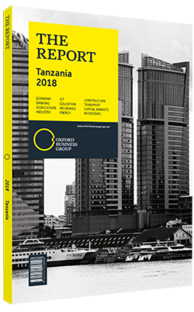James Kilaba, Director-General, Tanzania Communications Regulatory Authority: Interview

Interview: James Kilaba, Director-General, Tanzania Communications Regulatory Authority
What is the greatest challenge to boosting ICT use in Tanzania and sub-Saharan Africa?
JAMES KILABA: One challenge is inadequate power supply. Nearly one in five people in the world live without access to electricity, many of them located beyond the reach of the current grid system. Of these 1.2bn people, 95% are in sub-Saharan Africa and developing countries in Asia. Based on these figures, ICT service providers and in particular telecoms firms are running their base stations on generators for a considerable amount of time. In Tanzania the problem is expected to largely be reduced, as capacity to generate more power has increased since the discovery of natural gas.
The high cost of access is another challenge, however, various measures were put in place to mitigate this. With sector liberalisation and open competition, a deployment of infrastructure has enabled nationwide access to remote areas. Government investment in the National ICT Broadband Backbone to provide high-speed internet connectivity has lowered these costs even further. The landing of three submarine cables – SEACOM, the Eastern Africa Submarine Cable System and the East African Marine System – reduce access costs for international bandwidth.
Once the issue of cost is resolved, the next challenge is boosting ICT usage in Tanzania and other sub-Saharan countries through the development of applications and content that suit the demands and requirements for socio-economic development in terms of education, health, commerce and agriculture.
To what extent can ICT play a supporting role for small and medium-sized enterprises (SMEs)?
KILABA: SMEs play a vital role as engines through which developing countries like Tanzania grow. They form the major components of job creation, economic growth and development worldwide. ICT is undoubtedly the best solution in overcoming many challenges faced by SMEs, and its adoption will boost capacities and enhance productivity. As a tool, ICT not only improves business performance, but can be used to overcome challenges which are specific to SMEs. With ICT, entrepreneurs can save time and reduce mobility constraints, have access to formal financial services, information, skills and personalised advice, as well as participate in professional business networks.
SMEs’ productivity and capacity can be best achieved via the internet, mobile services, smart devices and even cloud computing, which make for much more empowered growing businesses. Addressing the technological needs of SMEs could be reflected in ways by which telecoms operators design various solutions specifically targeting these firms. Therefore, it is vital for the government to create an enabling environment for SMEs to thrive and create more employment and increase productivity.
How can ICT improve education and training?
KILABA: Improving the quality of education and training is critical, particularly at a time when Tanzania aims to become a middle-income earning country. ICT can enhance the quality of education by increasing learner motivation and engagement, facilitating the acquisition of basic skills and enhancing teacher training. ICT also possesses transformational tools which can promote the shift to a learner-centred environment.
Various ICT formats such as videos, TV, multimedia, computers and software that combine text, sound, and colourful moving images can be used to provide challenging and authentic content that engages students. Likewise, interactive radio makes use of sound effects, songs, dramatisations, comic sketches and other performance conventions to compel students to listen and become more involved with the content. More so than any other type of ICT, networked computers increase learner motivation, as they combine the media richness and interactivity of ICT mediums with the opportunity to connect with other people.
You have reached the limit of premium articles you can view for free.
Choose from the options below to purchase print or digital editions of our Reports. You can also purchase a website subscription giving you unlimited access to all of our Reports online for 12 months.
If you have already purchased this Report or have a website subscription, please login to continue.

